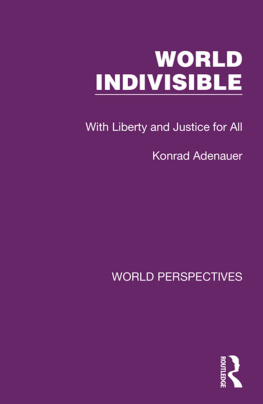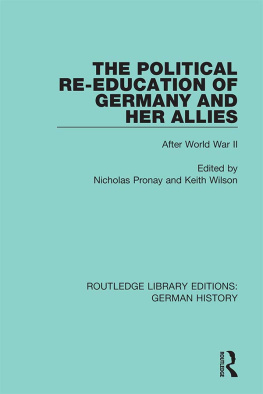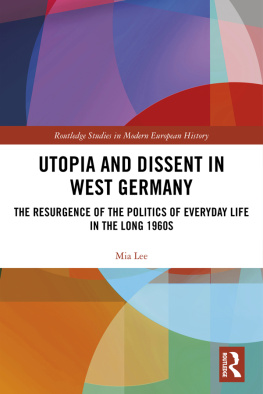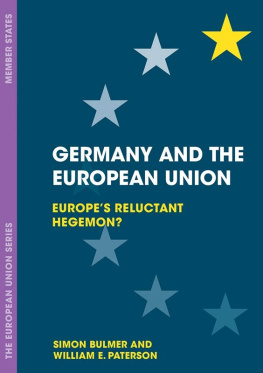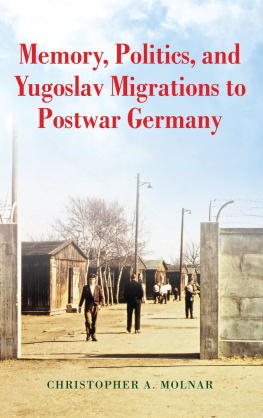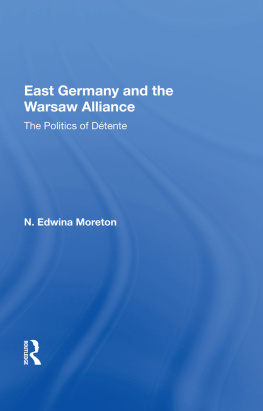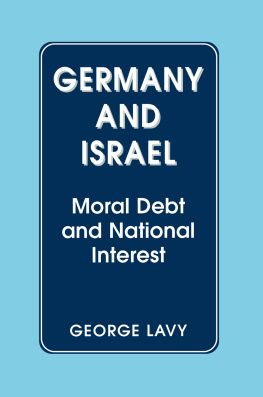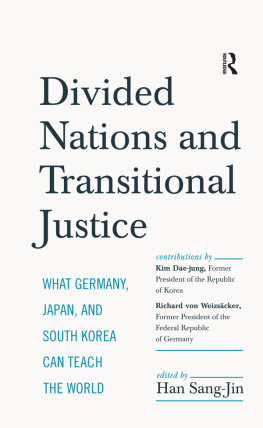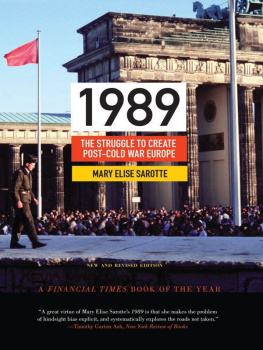First published in Great Britain in 1956 by George Allen & Unwin Ltd.
This edition first published in 2022
by Routledge
2 Park Square, Milton Park, Abingdon, Oxon OX14 4RN
and by Routledge
605 Third Avenue, New York, NY 10158
Routledge is an imprint of the Taylor & Francis Group, an informa business
1956 Konrad Adenauer
All rights reserved. No part of this book may be reprinted or reproduced or utilised in any form or by any electronic, mechanical, or other means, now known or hereafter invented, including photocopying and recording, or in any information storage or retrieval system, without permission in writing from the publishers.
Trademark notice: Product or corporate names may be trademarks or registered trademarks, and are used only for identification and explanation without intent to infringe.
British Library Cataloguing in Publication Data
A catalogue record for this book is available from the British Library
ISBN: 978-1-03-215357-5 (Set)
ISBN: 978-1-00-325786-8 (Set) (ebk)
ISBN: 978-1-03-218667-2 (Volume 1) (hbk)
ISBN: 978-1-03-218685-6 (Volume 1) (pbk)
ISBN: 978-1-00-325567-3 (Volume 1) (ebk)
DOI: 10.4324/9781003255673
Publishers Note
The publisher has gone to great lengths to ensure the quality of this reprint but points out that some imperfections in the original copies may be apparent.
Disclaimer
The publisher has made every effort to trace copyright holders and would welcome correspondence from those they have been unable to trace.
As a selection from Dr. Adenauers speeches, this book aims to present in an ordered sequence the flow of events which called for forthright declarations from the Chancellor. The reader will note that many of the references are by their very nature dated, in that they are intimately linked with the changing circumstances of Europes speeding post-war history which called them forth.
The material is concerned generally with three periods:
First, from the founding of the Federal Republic (September, 1949) to the modification of the Document of Allied Control, the Occupation Statute (March, 1951), the ratification of the Schuman Plan (April, 1951) and German entrance into the Council of Europe (May, 1951);
Second, from the negotiations for a European Defence Community (initialed in May, 1952) until the abandonment of this approach (August, 1954);
Third, creation of the West European Union and German entry into the North Atlantic Treaty Organization (May, 1955) together with the return of German sovereignty.
Thus the viewpoints expressed in this text are not to be read in the context of the present, but rather as contributions to the developments of the past half-dozen years which brought free Germany to its present status in Europe.
Germany remained divided, of course, free only in the west, its central and eastern areas behind the Iron Curtain. Perhaps no greater tribute can be paid to Chancellor Adenauers statesmanship than this: that despite the division in his homeland his leadership forged a policy which enabled free Germany to contribute its full share to Western unity and strength at a critical juncture of history.
Contents
WORLD PERSPECTIVES
1930-1955
2 End of Nationalism
3 Christian Civilization at Stake
4 Cold War, Not Indivisible Peace
5 German Democracy in the Void
6 Worldwide Aggression by Totalitarian Communism
7 EuropePast, Present, Future
8 The United States and European Union
9 Great Britains Revolutionary Decision for European Union
10 Soviet Russias Security Unmenaced
11 Germanys Reunification
12 German Sovereignty
13 The Wests Eastern Bulwark
14 Turn in World History
15 NATO
World Perspectives
World Perspectives is dedicated to the concept of man born out of a universe perceived through a fresh vision of reality. Its aim is to present short books written by the most conscious and responsible minds of today. Each volume represents the thought and belief of each author and sets forth the interrelation of the changing religious, scientific, artistic, political, economic and social influences upon mans total experience.
This Series is committed to a re-examination of all those sides of human endeavour which the specialist was taught to believe he could safely leave aside. It interprets present and past events impinging on human life in our growing World Age and envisages what man may yet attain when summoned by an unbending inner necessity to the quest of what is most exalted in him. Its purpose is to offer new vistas in terms of world and human development while refusing to betray the intimate correlation between universality and individuality, dynamics and form, freedom and destiny. Each author treats his subject from the broad perspective of the world community, not from the Judaeo-Christian, Western or Eastern viewpoint alone.
Certain fundamental questions which have received too little consideration in the face of the spiritual, moral and political world crisis of our day, and in the light of technology which has released the creative energies of peoples, are treated in these books. Our authors deal with the increasing realization that spirit and nature are not separate and apart; that intuition and reason must regain their importance as the means of perceiving and fusing inner being with outer reality.
We come increasingly to realize that the conception of wholeness, unity, organism is a higher and more concrete conception than that of matter and energy. Thus it would seem that science itself must ultimately pursue the aim of interpreting the physical world of matter and energy in terms of the biological conception of organism. An enlarged meaning of life, of biology, not as it is revealed in the test tube of the laboratory but as it is experienced within the organism of life itself is attempted in this Series. For the principle of life consists in the tension which connects spirit with the realm of matter. The element of life is dominant in the very texture of nature, thus rendering life, biology, a transempirical science. The laws of life have their origin beyond their mere physical manifestations and compel us to consider their spiritual source. In fact, the widening of the conceptual framework has not only served to restore order within the respective branches of knowledge, but has also disclosed analogies in mans position regarding the analysis and synthesis of experience in apparently separated domains of knowledge suggesting the possibility of an ever more embracing objective description of the meaning of life.

